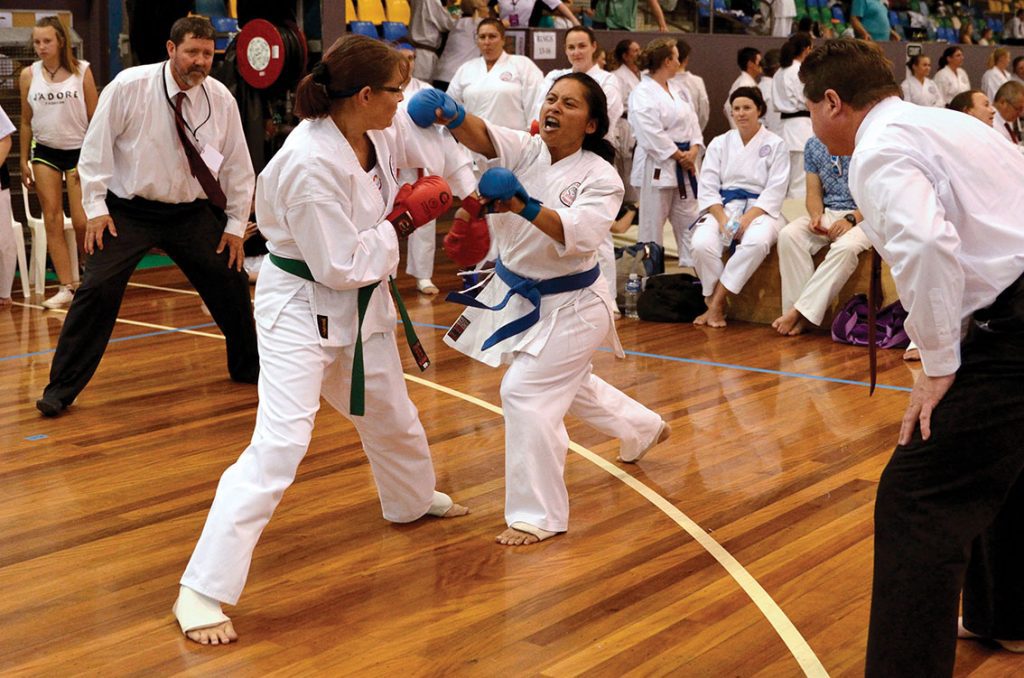Returning to Karate Training After a Break
We might find ourselves temporarily out of training for a while for various reasons. It could be due to an injury, an illness or even a demanding period at school or work. And the longer we are away, the harder it is to return. Returning to karate training after a break can be tough. Many find it difficult to return to the dojo; sadly, some never do. But that does not have to be the case.
 1. Acknowledging the Challenge
1. Acknowledging the Challenge
Returning to karate training after a hiatus can feel daunting. Whether the break was due to injury, illness, or life’s many demands, the longer you stay away, the harder it seems to step back into the dojo. For many, there’s a fear of falling behind or not performing as well as they once did. It’s crucial to understand that karate is a personal journey, not a competition. Embracing this mindset can alleviate much of the anxiety associated with returning. Everyone progresses at their own pace; the primary goal is personal growth and improvement.
2. Overcoming Mental Barriers
A common mental barrier is the fear of judgment from others or the discomfort of not being as fit as before. However, it’s essential to ask yourself which is worse: the temporary embarrassment of looking a little rusty or the long-term regret of never returning? Karate teaches perseverance and courage, which are needed to make a comeback. Reflecting on what could be lost by not returning can be a powerful motivator. Think about the skills you risk losing if you don’t try to regain them.
3. Maintaining Engagement During Absences
It’s often possible to minimize the impact of a break from the dojo. For instance, you can still practice others if you’re injured and can’t perform certain moves. Adapting your training to focus on what you can do, like practising kata with one arm or focusing on kicks and stances, helps maintain your connection to karate. Similarly, if you’re feeling under the weather, consider lighter, less intensive training either at home or the back of the class. This will keep your skills sharper and make the transition back to full training smoother.
4. Planning Your Return
Finally, planning your return is crucial for a successful comeback. Set realistic goals for your first weeks back and communicate with your instructors about any concerns or limitations you might have. They can help adjust your training regimen to match your current fitness level and gradually increase the intensity as you regain strength and confidence. Additionally, reconnecting with the karate community can provide emotional support and motivate you to stay committed. Remember, the first step back is the most important; from there, each class will help rebuild your confidence and abilities.
5. Embrace A Supportive Community
One of the greatest strengths of karate training is the community that comes with it. Upon your return, lean into the support and encouragement of your fellow karateka and instructors. They understand the challenges of returning after a break and can provide moral and technical support. Participate in dojo events and social gatherings to reconnect with the community. This engagement can boost your morale and motivate you to continue your training. A supportive environment will remind you that everyone’s journey in karate is unique and that progress, not perfection, is the goal.
6. Focus On Incremental Progress
When returning to karate training, focusing on incremental progress rather than immediate results is vital. Break your training goals into small, manageable steps and celebrate each achievement, no matter how small. For example, if your endurance isn’t what it used to be, start with shorter training sessions and gradually increase the duration as your stamina improves. Similarly, if you’re working on regaining technique, concentrate on refining a single move or kata. This systematic approach prevents overwhelm and helps you rebuild your skills at a pace that suits your current physical and mental state.
By following these steps and recognizing that each part of the journey is as essential as the others, you can make your return to karate training successful and enriching. Keep the focus on personal improvement, stay engaged even when you can’t be at the dojo, and plan your comeback carefully. With the right mindset and approach, you’ll find that returning to karate can be a fulfilling experience that significantly contributes to a long-term, healthy lifestyle.
Related Articles
Train Like Everyone Is Watching
Climbing Back Up The Mountain



